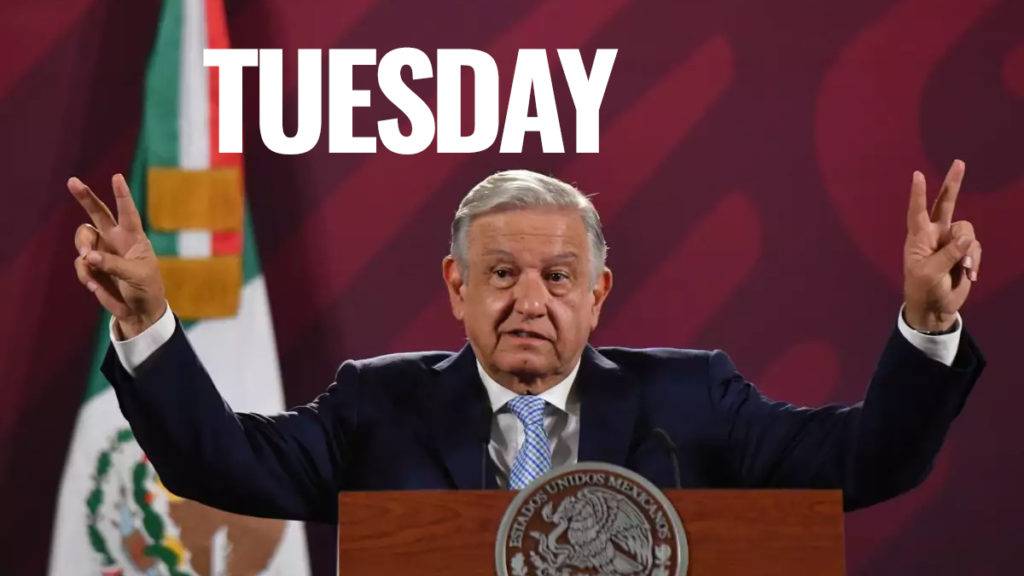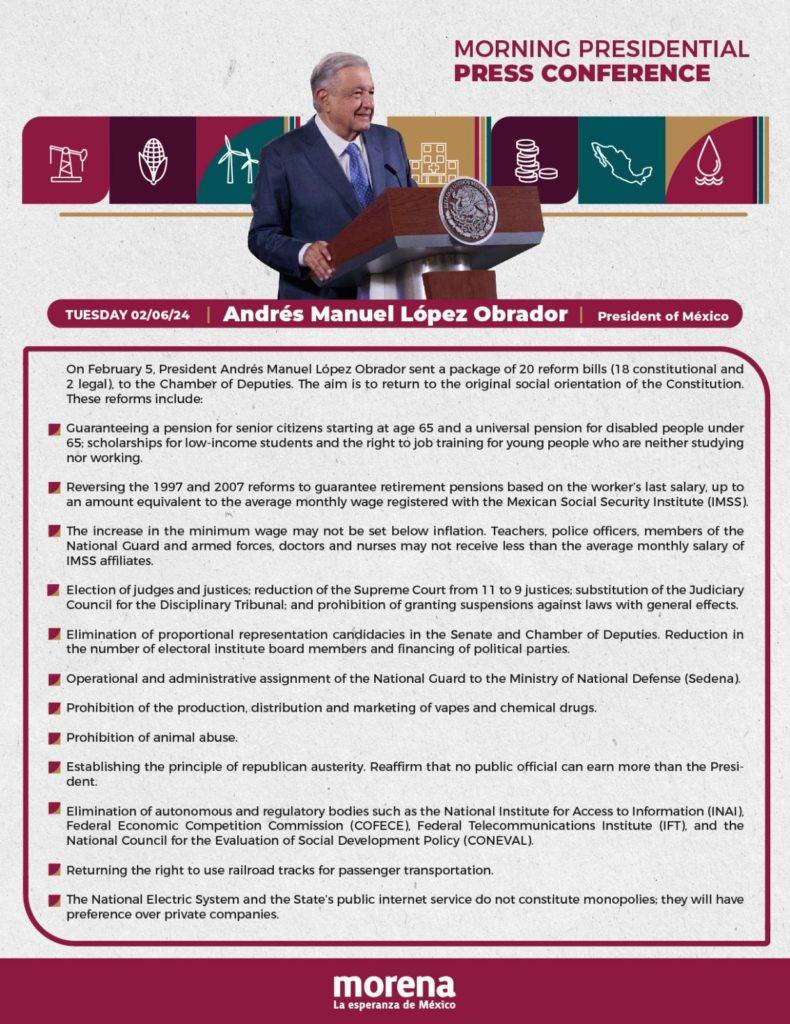
On February 5, President Andrés Manuel López Obrador sent a package of 20 reform bills (18 constitutional and 2 legal), to the Chamber of Deputies. The aim is to return to the original social orientation of the Constitution. These reforms include:
-Guaranteeing a pension for senior citizens starting at age 65 and a universal pension for disabled people under 65; scholarships for low-income students and the right to job training for young people who are neither studying nor working.
-Reversing the 1997 and 2007 reforms to guarantee retirement pensions based on the worker’s last salary, up to an amount equivalent to the average monthly wage registered with the Mexican Social Security Institute (IMSS).
-The increase in the minimum wage may not be set below inflation. Teachers, police officers, members of the National Guard and armed forces, doctors and nurses may not receive less than the average monthly salary of IMSS affiliates.
-Election of judges and justices; reduction of the Supreme Court from 11 to 9 justices; substitution of the Judiciary Council for the Disciplinary Tribunal; and prohibition of granting suspensions against laws with general effects.
-Elimination of proportional representation candidacies in the Senate and Chamber of Deputies. Reduction in the number of electoral institute board members and financing of political parties.
-Operational and administrative assignment of the National Guard to the Ministry of National Defense (Sedena).
-Prohibition of the production, distribution and marketing of vapes and chemical drugs.
-Prohibition of animal abuse.
-Establishing the principle of republican austerity. Reaffirm that no public official can earn more than the President.
-Elimination of autonomous and regulatory bodies such as the National Institute for Access to Information (INAI), Federal Economic Competition Commission (COFECE), Federal Telecommunications Institute (IFT), and the National Council for the Evaluation of Social Development Policy (CONEVAL).
-Returning the right to use railroad tracks for passenger transportation.
-The National Electric System and the State’s public internet service do not constitute monopolies; they will have preference over private companies.

